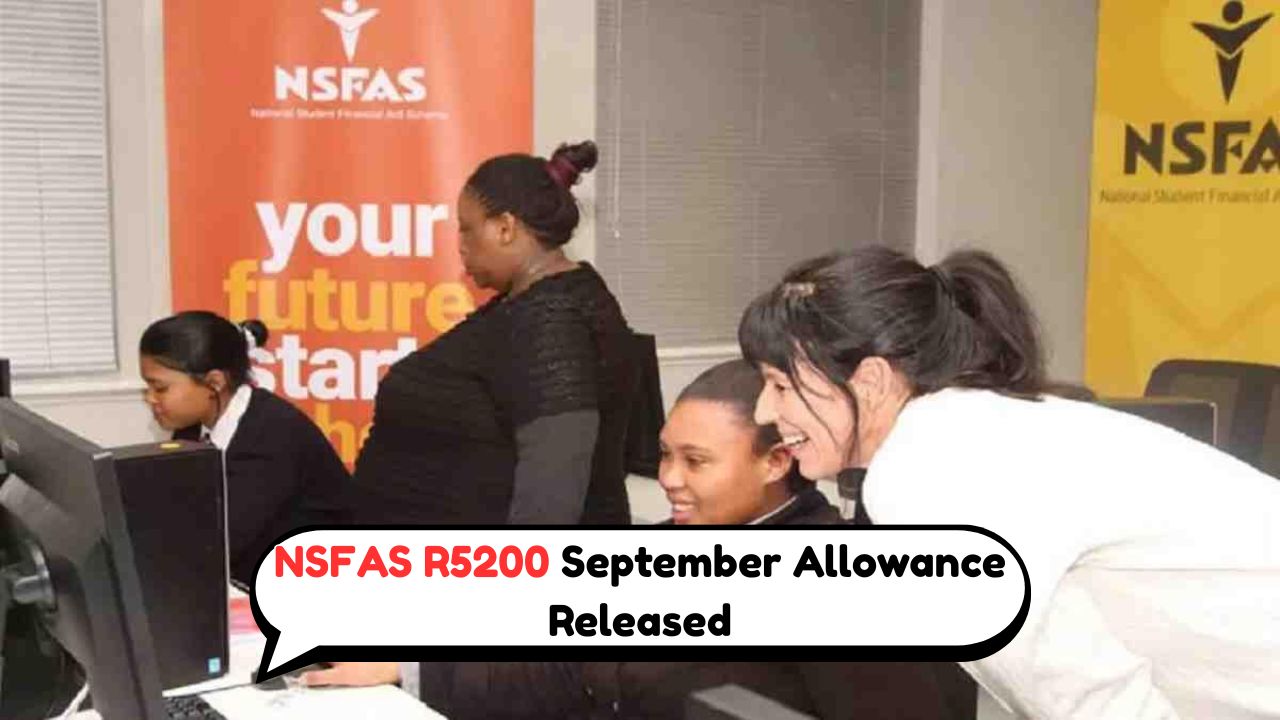NSFAS R5,200 Student Allowance: The National Student Financial Aid Scheme (NSFAS) has announced a significant increase in student allowances, marking a transformative moment for higher education in South Africa. Starting this September, eligible students will receive a monthly allowance of R5,200, a move aimed at easing the financial burden on many young South Africans pursuing tertiary education. This increase is a welcome relief for students who struggle to cover essential living expenses, including accommodation, food, and transport. As the cost of living continues to rise, this adjustment reflects NSFAS’s commitment to supporting students from low-income backgrounds and ensuring equitable access to quality education.
Understanding the Impact of the R5,200 NSFAS Student Allowance
The introduction of the R5,200 student allowance by NSFAS is poised to make a substantial impact on the lives of countless South African students. This financial boost is not merely a monetary increase but a strategic intervention aimed at tackling the multifaceted challenges students face. For many, this allowance will provide the necessary relief to focus on their studies without the constant worry of financial constraints. It is particularly significant for students residing in urban areas where living costs are notably higher. The increased stipend will help cover essential expenses such as rent, groceries, and transportation, alleviating some of the financial pressures that often lead to student dropouts. In addition, this allowance contributes to a more inclusive educational environment, enabling students from diverse backgrounds to participate fully in academic and extracurricular activities, thus enriching their university experience.
Eligibility and Application Process for the New NSFAS Allowance
Not all students qualify for the NSFAS allowance, so understanding the eligibility criteria and application process is crucial. The R5,200 allowance is targeted at students from households with an annual income below a certain threshold, ensuring that financial aid reaches those who need it the most. Prospective applicants must be South African citizens enrolled in a public university or TVET college. The application process involves submitting proof of income, academic records, and other relevant documents through the NSFAS online portal. It is important for applicants to carefully follow the guidelines and deadlines provided by NSFAS to ensure their applications are considered. Once approved, students can expect the allowance to be deposited directly into their bank accounts each month, providing a stable and predictable financial support system throughout their academic journey.
How the R5,200 NSFAS Allowance Supports Student Success
The R5,200 monthly stipend from NSFAS is more than just financial aid; it is an enabler of student success. By addressing the basic financial needs of students, this allowance allows them to direct their energy and attention towards academic achievement. With reduced financial stress, students can focus better on their studies, participate in campus life, and pursue extracurricular activities that enhance personal growth and professional development. Furthermore, this support helps bridge the gap between students from different socio-economic backgrounds, fostering a more equitable educational environment. By empowering students to excel academically and socially, NSFAS is investing in the future workforce of South Africa, ensuring that graduates are well-prepared to contribute positively to the economy and society.
The Broader Economic Implications of the Increased NSFAS Allowance
The decision to increase the NSFAS student allowance to R5,200 is not only a boon for individual students but also has broader economic implications. By investing in education, the government is laying the groundwork for a more skilled and educated workforce, which is essential for driving economic growth. As students graduate and enter the job market, their enhanced skills and knowledge contribute to various sectors, boosting productivity and innovation. Additionally, by alleviating financial burdens, the allowance may reduce dropout rates, resulting in higher graduation rates and a more educated population. This move also aligns with national goals of reducing inequality and promoting social mobility. As students from lower-income families gain better access to higher education, they have improved chances of breaking the cycle of poverty and securing better employment opportunities, ultimately contributing to a more prosperous South Africa.

